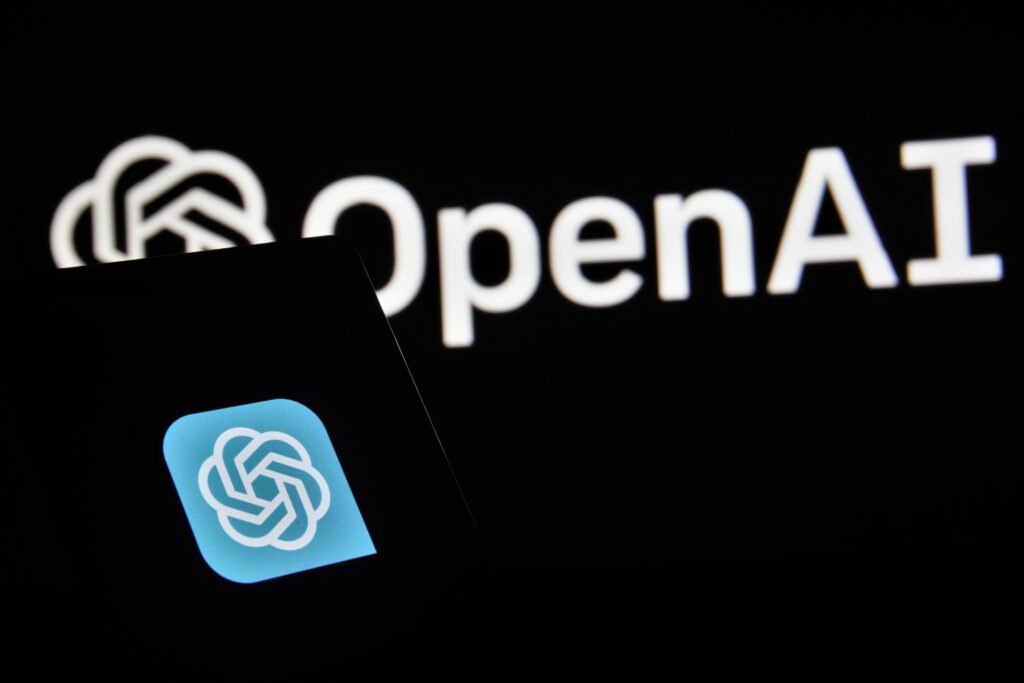Artificial intelligence is on the brink of revolutionizing the way we live, work, and interact with technology. In this article, we’ll explore the exciting possibilities of this rapidly advancing field and the impact it will have on our society. From autonomous cars to personalized digital assistants, AI is set to transform various industries, making our lives more efficient, convenient, and connected. Join us on this journey as we explore how artificial intelligence will shape the future and unlock limitless potential for innovation and growth.
Automation and Efficiency
Streamlined Processes
Artificial Intelligence (AI) plays a crucial role in streamlining processes across various industries. By automating repetitive and time-consuming tasks, AI enables organizations to achieve improved efficiency and productivity. For example, AI-powered chatbots can handle customer queries and provide instant responses, freeing up human agents to focus on more complex issues. With AI technology, businesses can streamline their workflows, reduce operational costs, and enhance overall organizational efficiency.
Reduction in Error Rates
One of the significant advantages of AI is its ability to minimize error rates. Unlike humans who are prone to fatigue, stress, and distractions, AI systems can consistently perform tasks with precision and accuracy. This reduces the likelihood of human errors that can lead to costly mistakes or accidents. AI algorithms can analyze vast amounts of data quickly and make data-driven decisions, minimizing the risk of errors caused by human judgment. By leveraging AI, organizations can optimize their operations and ensure higher accuracy in various domains such as manufacturing, healthcare, and finance.
Enhanced Productivity
AI has the potential to revolutionize productivity levels in the workplace. With the ability to process large volumes of data at incredible speeds, AI systems can generate insights and recommendations that can enhance decision-making processes. For instance, AI-based analytics tools can analyze complex datasets to identify trends, patterns, and correlations, enabling businesses to make informed decisions more efficiently. By automating time-consuming tasks and providing real-time insights, AI empowers individuals and organizations to achieve higher productivity levels and focus their efforts on tasks that require human creativity and critical thinking.
Personal Assistants and Virtual Agents
24/7 Availability
AI-powered personal assistants and virtual agents provide round-the-clock accessibility to users. Unlike humans, AI doesn’t require rest or breaks, allowing these digital helpers to be available anytime, anywhere. Whether it’s answering customer queries, scheduling appointments, or providing personalized recommendations, AI-driven assistants ensure that users have instant access to assistance and support at their convenience. This 24/7 availability helps organizations deliver excellent customer service and fosters customer satisfaction by meeting their needs promptly.
Improved Customer Service
AI technology has the potential to transform customer service by providing efficient, personalized, and proactive support. AI-driven chatbots and virtual agents can interact with customers in a conversational and natural manner, understanding their queries and providing relevant solutions. These virtual agents can handle a wide range of customer inquiries, freeing up human agents to focus on complex and high-value interactions. With AI-powered customer service, businesses can enhance response times, resolve issues more effectively, and elevate the overall customer experience.
Interactive and Dynamic Conversations
AI-enabled personal assistants and virtual agents are becoming increasingly sophisticated, allowing for interactive and dynamic conversations. Natural Language Processing (NLP) techniques enable AI systems to understand and respond to human language, making conversations with AI more intuitive and engaging. Advanced AI technologies can analyze contextual information, detect emotions, and tailor responses accordingly. With interactive and dynamic conversations, AI-equipped virtual agents can provide personalized recommendations, offer relevant information, and engage users in a more human-like way, further enhancing the user experience.
Data Analysis and Insights

Better Decision Making
Data analysis is a critical component of effective decision-making, and AI has the potential to revolutionize this process. AI algorithms can process vast amounts of data and extract valuable insights that may not be apparent to human analysts. By leveraging AI-powered analytics tools, organizations can make data-driven decisions that are based on comprehensive and accurate information. AI can identify patterns, trends, and correlations in data, enabling businesses to make proactive and informed decisions that can drive growth, improve operational efficiency, and optimize resource allocation.
Identification of Patterns
AI algorithms excel in identifying patterns and trends in complex datasets, offering valuable insights for businesses. By analyzing historical data, AI systems can detect hidden patterns that humans may overlook, helping organizations identify emerging trends or potential risks. For example, in the financial sector, AI-powered algorithms can analyze market patterns and trading behavior to identify investment opportunities or predict market fluctuations. By leveraging AI’s pattern recognition capabilities, organizations can gain a deeper understanding of their data, enabling them to anticipate market changes, identify customer preferences, and develop effective strategies.
Uncovering Hidden Opportunities
AI has the potential to uncover hidden opportunities by analyzing large datasets and identifying untapped potential. Through the utilization of machine learning and predictive modeling techniques, AI algorithms can identify patterns and correlations that can lead to business growth and innovation. For instance, AI algorithms can analyze consumer behavior data to uncover untapped market segments or identify new product opportunities. By leveraging AI’s ability to uncover hidden opportunities, businesses can make strategic decisions that can drive competitiveness and enable them to stay ahead in rapidly evolving markets.
Healthcare Revolution
Early Disease Detection
AI technology has the potential to revolutionize the healthcare industry by enabling early detection and intervention for various diseases. Through the analysis of large amounts of patient data, AI algorithms can identify patterns and detect early warning signs of diseases such as cancer, diabetes, and cardiovascular conditions. AI-powered systems can analyze medical images, genetic data, and patient records to identify potential health risks or provide accurate diagnoses. By providing early disease detection, AI can help healthcare professionals intervene at the earliest stage possible, offering better treatment outcomes and potentially saving lives.
Tailored Treatment Plans
AI’s ability to analyze vast amounts of data can significantly improve the development and implementation of tailored treatment plans for patients. By analyzing patient records, genetics, lifestyle data, and treatment outcomes, AI algorithms can generate personalized treatment recommendations. AI can analyze complex medical data to identify the most effective treatment options, taking into account individual patient characteristics and medical history. By tailoring treatment plans to individual patients, AI empowers healthcare professionals to provide more precise and effective care, maximizing patient outcomes and improving overall healthcare delivery.
Improved Patient Care
AI plays a vital role in enhancing patient care by enabling better monitoring, prediction, and intervention. AI-powered devices and systems can continuously monitor patient vitals, detect abnormalities, and alert healthcare providers in real-time. By leveraging AI’s predictive capabilities, healthcare professionals can identify patients who are at high risk of deteriorating conditions or complications, ensuring timely interventions and preventing adverse outcomes. Additionally, AI can assist in automating administrative tasks, reducing the burden on healthcare professionals, and allowing them to spend more time on direct patient care. With AI-enabled healthcare, patients can benefit from improved care quality, increased safety, and better overall healthcare experiences.
Transportation and Mobility

Autonomous Vehicles
Autonomous vehicles represent one of the most significant advancements in transportation technology, driven by AI. AI algorithms enable vehicles to perceive and interpret their environment, make real-time decisions, and navigate safely without human intervention. The development of self-driving cars has the potential to revolutionize transportation by reducing accidents caused by human errors, improving traffic flow, and enhancing overall mobility. With AI-powered autonomous vehicles, it is envisioned that transportation will become safer, more efficient, and accessible for all.
Efficient Traffic Management
AI can significantly improve traffic management systems, mitigating congestion, and optimizing traffic flow. By analyzing real-time traffic data, AI algorithms can predict traffic patterns, identify bottlenecks, and optimize signal timings to minimize delays. Additionally, AI can integrate with various modes of transportation and provide real-time recommendations for route planning, taking into account factors such as traffic conditions, time of day, and individual preferences. By leveraging AI for traffic management, cities and transportation authorities can reduce commuting times, decrease fuel consumption, and create more sustainable and efficient transportation systems.
Enhanced Safety Measures
AI-powered technologies can enhance safety measures across different modes of transportation. In addition to autonomous vehicles, AI can be utilized in areas such as aviation, railways, and maritime transportation to improve safety protocols. For example, AI algorithms can analyze flight data to detect potential safety risks and provide real-time alerts and recommendations to pilots. In railway systems, AI can monitor track conditions, predict maintenance needs, and detect potential hazards. By leveraging AI’s predictive and analysis capabilities, transportation systems can enhance safety measures, reduce accidents, and ensure smoother and more secure journeys for passengers.
Education Transformation
Personalized Learning
AI has the potential to transform education by enabling personalized learning experiences tailored to individual students’ needs. AI-powered educational platforms can analyze student performance, learning preferences, and strengths and weaknesses to create personalized learning paths. Through adaptive algorithms, AI can present content in a customized manner, providing students with the right level of challenge and support. This individualized approach to education can enhance student engagement, motivation, and overall learning outcomes.
Adaptive Assessments
AI can revolutionize the assessment process by providing adaptive and data-driven evaluations. AI-powered systems can analyze student responses, track progress, and provide real-time feedback. These systems can adapt the level of difficulty and content of assessments based on the individual student’s performance, ensuring a more accurate measurement of their knowledge and skills. Adaptive assessments enable educators to identify areas where students may be struggling and provide targeted interventions or additional resources. By leveraging AI for assessments, education systems can foster continuous growth, personalized feedback, and improve overall student achievement.
Improved Education Access
AI has the potential to bridge the gap in education access by providing innovative solutions for remote learning and inclusive education. With AI-enabled technologies, students in underserved areas can access quality educational resources and experiences that were previously unavailable to them. AI-powered virtual classrooms, interactive learning platforms, and language translation tools can break down barriers and enable students from diverse backgrounds to access education. By leveraging AI to improve education access, societies can foster equal opportunities, empower learners, and enhance global education outcomes.
Cybersecurity Enhancement

Proactive Threat Detection
AI technology plays a critical role in enhancing cybersecurity by enabling proactive threat detection and prevention. AI-powered systems can analyze vast amounts of data, identify suspicious patterns, and detect potential cyber threats in real-time. By leveraging AI’s ability to detect anomalies, organizations can identify and respond to cyber attacks promptly, minimizing the risk of data breaches or disruptions. With AI-enabled threat detection, cybersecurity professionals can stay one step ahead of cybercriminals, offering robust protection for sensitive information and critical infrastructure.
Advanced Fraud Prevention
AI can significantly enhance fraud prevention by identifying and mitigating fraudulent activities across various industries. AI algorithms can analyze large datasets and detect patterns that indicate fraudulent behavior. For instance, in the financial sector, AI-powered systems can flag suspicious transactions, identify identity theft attempts, and detect fraudulent insurance claims. By leveraging AI’s predictive and analytical capabilities, organizations can reduce financial losses, protect customers from fraud, and maintain trust and credibility in their operations.
Secure Data Handling
AI can play a significant role in ensuring secure data handling practices. AI-powered systems can analyze data streams, identify sensitive information, and enable data encryption or anonymization. Additionally, AI algorithms can monitor access privileges, detect unauthorized activities, and provide real-time alerts for potential data breaches or privacy violations. With AI-enabled secure data handling, organizations can protect sensitive data, comply with data protection regulations, and reinforce trust among users and customers.
Human-Robot Collaboration
Automated Repetitive Tasks
AI technology enables the automation of repetitive and mundane tasks, freeing up human resources for more complex and value-added activities. By leveraging AI-powered robots or software bots, organizations can streamline workflows and optimize productivity. For example, in manufacturing industries, robots can perform repetitive assembly line tasks, reducing the risk of human errors and increasing overall efficiency. Human-robot collaboration allows humans to focus on tasks that require creativity, critical thinking, and complex decision-making, while AI systems handle routine and repetitive activities.
Enhanced Workforce Efficiency
AI has the potential to enhance workforce efficiency by augmenting human capabilities and improving collaboration between humans and machines. AI-powered tools and systems can assist employees in various domains, providing real-time insights, recommendations, and automating administrative tasks. By supporting human decision-making processes, AI can help individuals make better and more informed decisions, leading to increased productivity and efficiency. With human and AI collaboration, organizations can tap into the strengths of both to achieve higher levels of performance and innovation.
Creation of New Job Roles
Contrary to popular belief, AI technology has the potential to create new job roles and opportunities, rather than solely replacing human workers. As AI automates routine and repetitive tasks, it frees up human resources to focus on more complex tasks that require creativity, problem-solving, and emotional intelligence. Moreover, the development, deployment, and maintenance of AI systems create new job roles such as AI specialists, data scientists, and AI ethics officers. By embracing AI and fostering reskilling and upskilling programs, organizations can adapt to the changing workforce dynamics and create new employment opportunities.
Economic and Workforce Impact
Job Disruptions and Transformations
The integration of AI technology in various industries will inevitably lead to job disruptions and transformations. Routine and repetitive tasks that are susceptible to automation may be replaced by AI systems. However, this disruption also creates opportunities for workers to transition into new roles that require human skills such as creativity, emotional intelligence, and critical thinking. While certain jobs may be replaced, new job roles will emerge, resulting in a different distribution of labor and potentially higher job satisfaction in industries where AI can augment human capabilities.
Shift in Skill Requirements
The widespread adoption of AI technology will lead to a shift in skill requirements in the job market. As routine tasks become automated, there will be an increased demand for skills that are complementary to AI technology. Skills such as data analysis, problem-solving, creativity, and adaptability will become more valuable in the workforce. Moreover, the ability to collaborate with AI systems and leverage their capabilities will be highly sought after. It is crucial for individuals and educational institutions to adapt to this shifting landscape and equip individuals with the necessary skills to thrive in the AI-driven future.
Redefining Workforce Dynamics
The integration of AI technology will reshape workforce dynamics and organizational structures. With the automation of routine tasks, organizations can reconfigure their workforce to focus on higher-value activities. Collaboration between human workers and AI systems will become more prevalent, leading to hybrid teams where humans and AI work together seamlessly. Organizations will need to adapt their processes, hierarchies, and training programs to foster effective collaboration between humans and machines. The successful integration of AI in the workforce requires a holistic approach that considers the ethical, social, and organizational implications, while maximizing the potential benefits of AI technology.
Ethical Considerations and Challenges
Privacy and Data Security
The widespread adoption of AI technology raises concerns regarding privacy and data security. AI systems rely on vast amounts of personal and sensitive data to provide accurate insights and decision-making. Ensuring the privacy of individuals and protecting their data from unauthorized access and misuse is crucial. Organizations must establish robust data protection practices, comply with relevant regulations, and implement transparent data handling procedures. Additionally, individuals must be aware of the privacy risks associated with AI technology and exercise caution when sharing personal information.
Accountability and Responsibility
AI technology introduces challenges in terms of accountability and responsibility for its actions and decisions. With autonomous systems and AI algorithms making decisions that impact individuals and society, it is essential to establish mechanisms to attribute responsibility and accountability when things go wrong. Organizations need to ensure that AI systems are transparent, explainable, and accountable for their actions. Developers, policymakers, and regulators must work together to establish guidelines and regulations that govern AI technology, addressing issues related to liability, ethics, and transparency.
Mitigating AI Bias
AI algorithms learn from historical data, and as a result, they can inherit biases present in the data. Bias in AI algorithms can result in unfair or discriminatory outcomes, perpetuating existing social inequalities. It is crucial to mitigate AI bias and ensure that AI systems are fair, unbiased, and promote equal opportunities for all individuals. Organizations should implement rigorous testing and evaluation procedures to identify and address biases in AI algorithms. Diverse teams of developers and domain experts should collaborate to ensure the fairness and inclusivity of AI systems.
In conclusion, the future of artificial intelligence holds immense potential to revolutionize various aspects of our lives. From streamlining processes to enhancing productivity, AI technology offers numerous benefits across industries. Personal assistants and virtual agents enable 24/7 availability and improved customer service. Data analysis and insights empower better decision-making and the uncovering of hidden opportunities. In healthcare, AI enables early disease detection, tailored treatment plans, and improved patient care. In transportation, AI contributes to the development of autonomous vehicles, efficient traffic management, and enhanced safety measures. AI-driven solutions transform education through personalized learning, adaptive assessments, and improved access. Additionally, AI enhances cybersecurity, enables human-robot collaboration, and brings forth economic and workforce impact. However, the integration of AI technology also poses ethical considerations and challenges, such as privacy, accountability, and bias. By addressing these challenges and leveraging the benefits of AI technology, we can shape a future that harnesses the power of artificial intelligence to benefit humanity.






